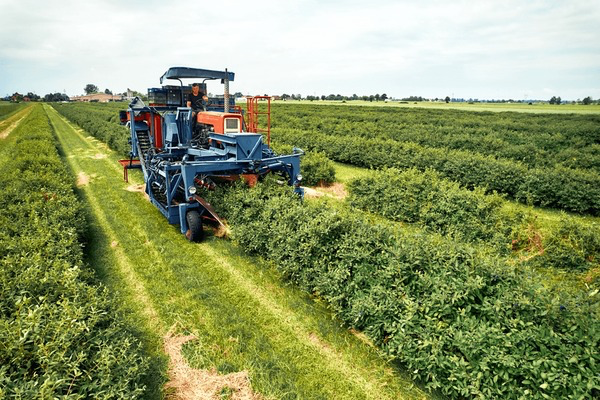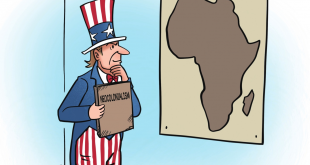Published: September 10,2024
By Gerald Mbanda

During the FOCAC 2024 Summit in Beijing, China announced that the overall characterization of China-Africa relations has been elevated to an all-weather China-Africa community with a shared future for the new era and a blueprint for future cooperation was jointly established. For the next three years, China announced 10 partnership actions in areas such as mutual learning among civilizations, trade prosperity, industrial chain cooperation, and connectivity. Chinapledged 360 billion yuan (about 51 billion U.S. dollars) of financial support to implement the 10 partnership goals for China-Africa modernization.
For the past fifteen years, China has remained Africa’s largest trading partner and last year (2023) the trade volume reached a record 282.1 billion US dollars, growing from US$261 billion in 2022. In 2023,China’s direct investment in Africa exceeded 40 billion dollars, and expected to grow in 2024 demonstrating the strong resilience of China-Africa economic and trade cooperation. China is the second largest economy in the world and the top manufacturing country, with 31.6% of the total global manufacturing output. On the other hand, with low industrial base, Africa’s contribution to global manufacturing stands at a mere 1.9% while manufactured goods imports account for 62% of total imports.
Western countries through their media have created a narrative that China has given big loans to African countries which they cannot pay back and this has resulted into a “debt trap.” This is absolutely not true. First of all it is not the lender who should be blamed for giving out loans; rather the question is how the borrower uses loan. “The ‘Debt Trap’ narrative is aimed at spoiling the good relationship of African countries with China simply to maintain western influence and dominance. The western story lines suggest that African countries have been “recolonized by China” due to the debt burden, and therefore, African countries should re-think their relationship with China because China is bad. The ‘debt trap narrative has failed as many African countries have realized the practical cooperation with China that produces tangible results.
To the contrary, research from China- Africa Research Initiative (CARI), at the Johns Hopkins University School of Advanced international studies indicate that Africa is more indebted to western countries than China. China’s lending to Africa compared to other lenders constitutes only 13% of the total Africa’s debt, while multilateral lenders make up 32% of Africa’s debt. Bondholders contribute 27%, other bilateral lenders 15%, while another 13% comes from non-official lenders. The multilateral lenders plus other bilateral are dominated by western countries and institutions like the IMF and World Bank.
China has helped many African countries by writing off their debts. Since 2000-2019, China wrote off more than $3.4 billion of debt, almost all interest-free loans to African countries. While in 2022, China forgiven 23 interest-free loans in 23 countries to allow them to manage their post-COVID economic recovery. Contrary to China ‘Debt trap’ narrative, China’s approach to debt relief has been more flexible.
Chinese companies have invested in development projects playing an increasing role in bolstering Africa’s industrialization. One example is the Sapphire Float Glass Factory in Tanzania’s coastal region, which serves both the local market and exports to six other African countries. With a production capacity of approximately 700 tonnes per day, the factory has created 1,012 direct jobs for locals and 3,857 indirect jobs since its inauguration in September 2023. At full capacity operation, the factory is expected to provide1,650 direct and 6,000 indirect jobs.
If we say that for the last fifteen years Africa has traded more with China than western countries, this gives sleepless nights to western manufacturers vying the vast Africa market of almost 1.4 billion people. If China wins most contracts for infrastructure development in Africa, definitely western companies will not be happy and they will do everything to create a crack in the China-Africa relationship. When I travel to Kenya and see the Nairobi High way, it strikes my eyes not only for the contribution to the city’s modernization, but also to improved traffic congestion and reduced time of travel and money wasted burning fuel in traffic jams. The good thing happening under FOCAC, is that China wants the development and modernity attained in infrastructure, industrialization, agriculture, innovation etc, is shared with African countries under the principle of ‘leaving no one behind’ through South-South Cooperation.
FOCAC 2024 therefore, is a continuation of the already existing framework of deepening practical cooperation between China and Africa. The African Development Bank estimates that the continent’s infrastructure financing needs will be as much as 170 billion US dollars a year by 2025 with an estimated gap of around 100 billion US dollars a year. China’s loan commitments under FOCAC provides significant advantages for Africa, to address the critical infrastructure development deficit and fostering economic development. China loans support much needed industrialization and plays an important role in job creation and skills development.
On December 6, 2023, China announced that 98 percent of taxable products from Angola, The Gambia, the Democratic Republic of the Congo (DRC), Madagascar, Mali and Mauritania would be exempt from import tariffs. China started the zero-tariff treatment for 6 least-developed African countries. Under FOCAC 2024, more cooperation will be enhanced in areas such as; trade, infrastructure development, health, education, agriculture, scienceand technology, Innovation, climate change, people t0 people exchange as well as the realization of UN SDGs and Africa’s Agenda 2063.
The future of China-Africa relations will continue to grow stronger and stronger under FOCAC and the Belt and Road Initiative frameworks. The future of China-Africa relationship does not depend on the wish of outsiders. It is the resolve of the two sides to work together with mutual respect, equality and shared interests. To say that China competes with the west for resources and influence again this is another misconception spread by western countries. China deals with African countries as equal partners on a win- win principle and on a sincere relationship with no conditionality or strings attached. China is not seeking influence but a new order in international relations that are more equitable and just.
Gerald Mbanda is a researcher and publisher on China- Africa Cooperation.
 Africa -China Review Africa -China Cooperation and Transformation
Africa -China Review Africa -China Cooperation and Transformation
